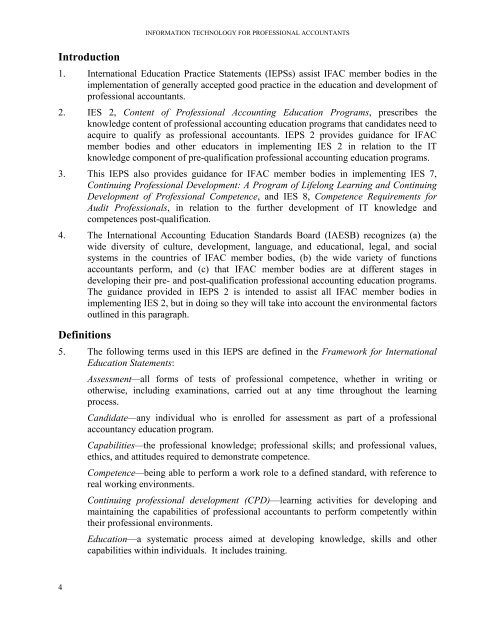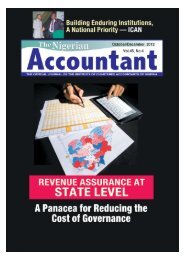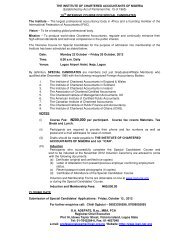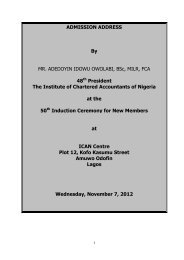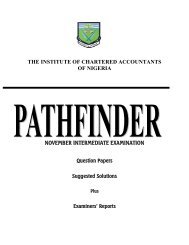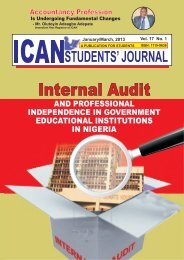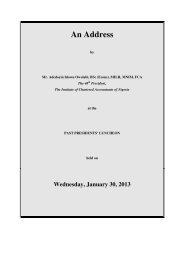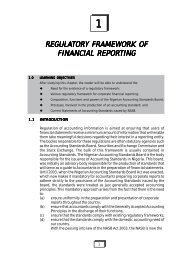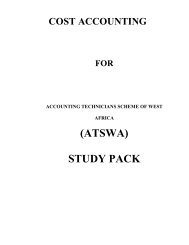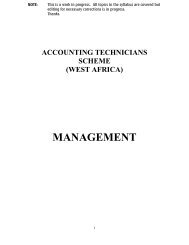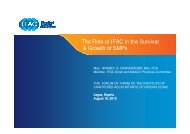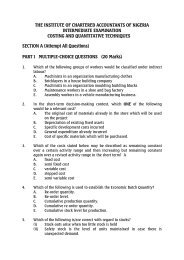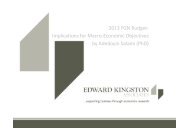Information Technology for Professional Accountants
Information Technology for Professional Accountants
Information Technology for Professional Accountants
- No tags were found...
You also want an ePaper? Increase the reach of your titles
YUMPU automatically turns print PDFs into web optimized ePapers that Google loves.
INFORMATION TECHNOLOGY FOR PROFESSIONAL ACCOUNTANTSIntroduction1. International Education Practice Statements (IEPSs) assist IFAC member bodies in theimplementation of generally accepted good practice in the education and development ofprofessional accountants.2. IES 2, Content of <strong>Professional</strong> Accounting Education Programs, prescribes theknowledge content of professional accounting education programs that candidates need toacquire to qualify as professional accountants. IEPS 2 provides guidance <strong>for</strong> IFACmember bodies and other educators in implementing IES 2 in relation to the ITknowledge component of pre-qualification professional accounting education programs.3. This IEPS also provides guidance <strong>for</strong> IFAC member bodies in implementing IES 7,Continuing <strong>Professional</strong> Development: A Program of Lifelong Learning and ContinuingDevelopment of <strong>Professional</strong> Competence, and IES 8, Competence Requirements <strong>for</strong>Audit <strong>Professional</strong>s, in relation to the further development of IT knowledge andcompetences post-qualification.4. The International Accounting Education Standards Board (IAESB) recognizes (a) thewide diversity of culture, development, language, and educational, legal, and socialsystems in the countries of IFAC member bodies, (b) the wide variety of functionsaccountants per<strong>for</strong>m, and (c) that IFAC member bodies are at different stages indeveloping their pre- and post-qualification professional accounting education programs.The guidance provided in IEPS 2 is intended to assist all IFAC member bodies inimplementing IES 2, but in doing so they will take into account the environmental factorsoutlined in this paragraph.Definitions5. The following terms used in this IEPS are defined in the Framework <strong>for</strong> InternationalEducation Statements:Assessment—all <strong>for</strong>ms of tests of professional competence, whether in writing orotherwise, including examinations, carried out at any time throughout the learningprocess.Candidate—any individual who is enrolled <strong>for</strong> assessment as part of a professionalaccountancy education program.Capabilities—the professional knowledge; professional skills; and professional values,ethics, and attitudes required to demonstrate competence.Competence—being able to per<strong>for</strong>m a work role to a defined standard, with reference toreal working environments.Continuing professional development (CPD)—learning activities <strong>for</strong> developing andmaintaining the capabilities of professional accountants to per<strong>for</strong>m competently withintheir professional environments.Education—a systematic process aimed at developing knowledge, skills and othercapabilities within individuals. It includes training.4


